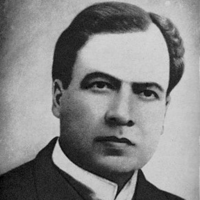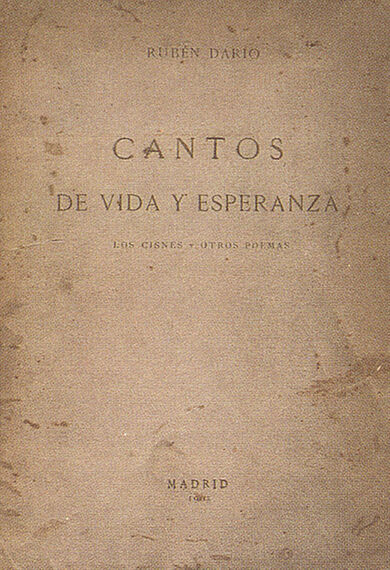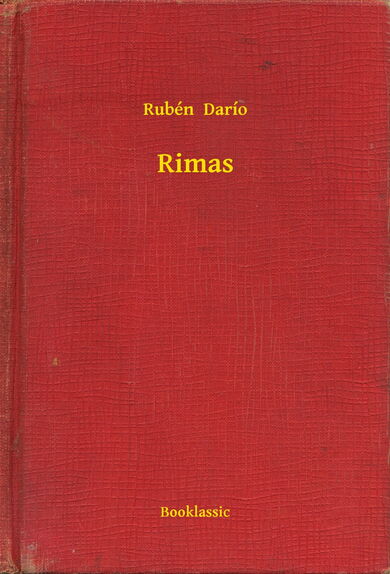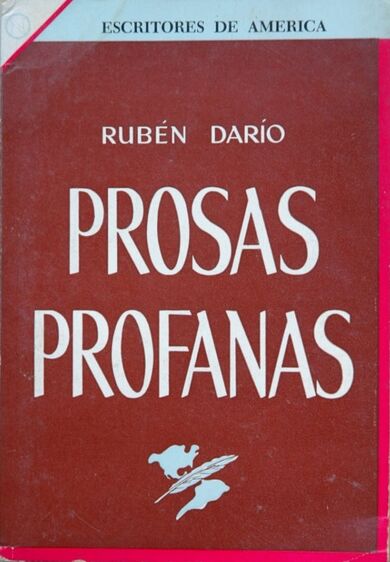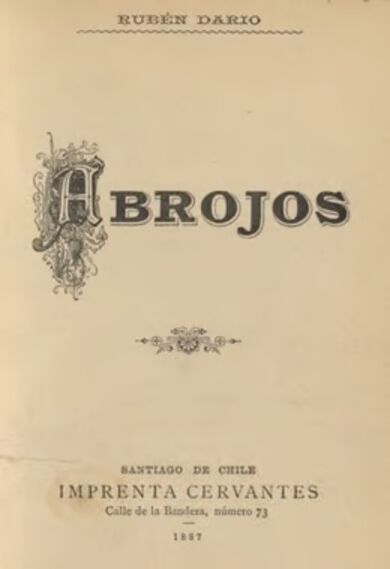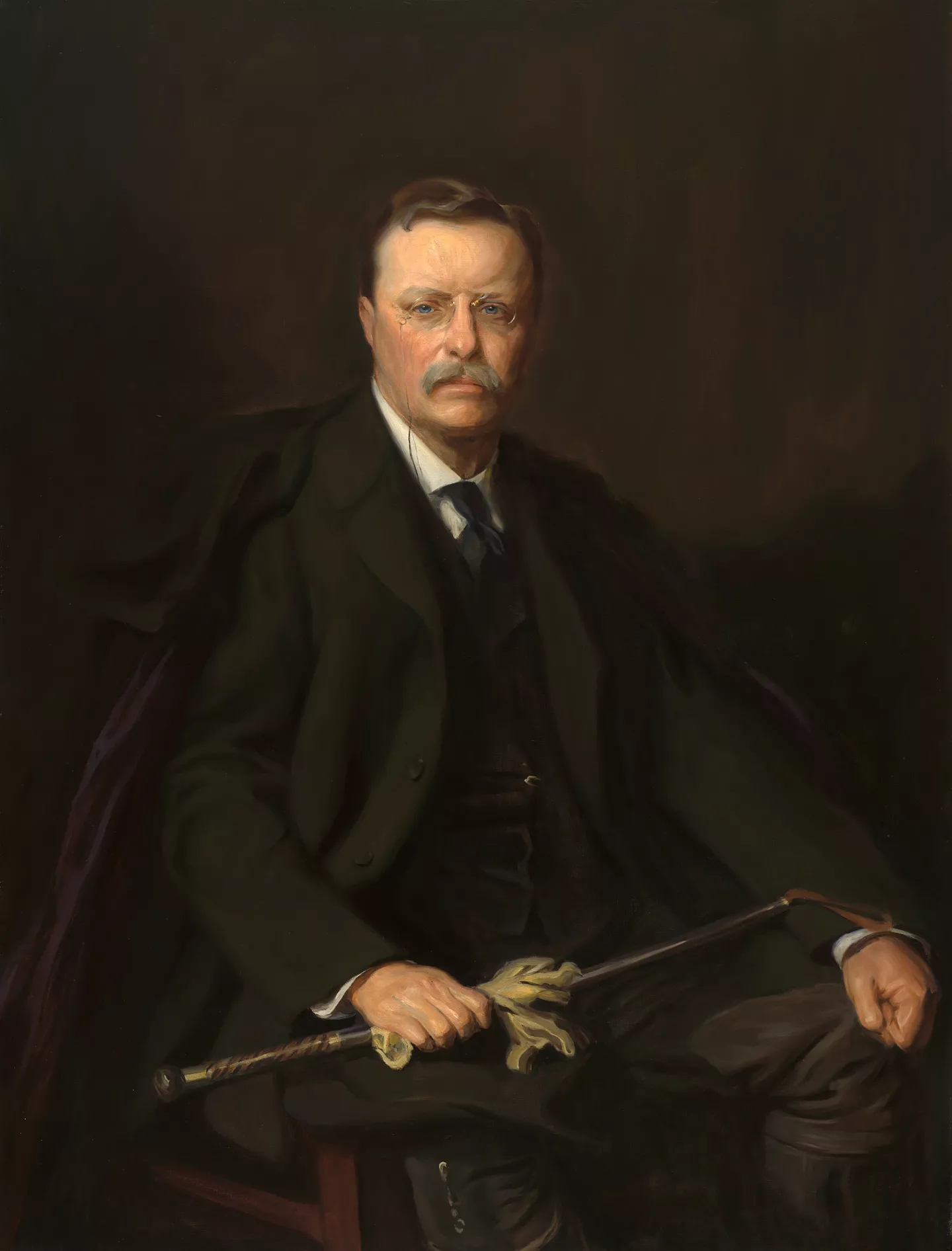
A Roosevelt
Introduction
Latin American culture has always had a strange relationship with the United States. It's been a love hate love relationship with the Europeans ever since Columbus discovered the new world, and has been smeared with war since the meeting of Cortez and Montezuma. FSU Panama students have a unique opportunity to understand this relationship from two different points of view, one Spanish and the other English, they can look from the outside looking in, and from the inside looking out. To me, it's very ironic to be covering A Roosevelt inside a building of the Ex Panama Canal Zone, which was one of the precursors to poem in the first place, to add to the irony, read by an ex-US soldier to a group of mostly Panamanian students. Ruben Dario's To Roosevelt may not rhyme, it may not be in iambic pentameter, but the poems use of allegory to people and moments in history to create stereotypes in the mind of its reader was effective in foreshadowing the would be relationship between the United States and Latin America.
Background: The Panama Canal, Canal Zone (1904) and Latin America
The United States had been eyeballing Central America to build a canal to transit between the Atlantic and Pacific oceans. Nicaragua and Panama were both considered as the most viable choices to construct a canal. Panama succeeded from Columbia with the help of US gunships, in return for a lease of a five mile strip of land to be called the Panama Canal Zone. The creation of the Panama Canal Zone in 1903 created tense relations with the rest of Latin America, the threat of war from the Anglo north was at its zenith. If the United States could push around one of the biggest powers of South America with is bullets and technology, how was this to be seen by smaller countries like Nicaragua? Ruben Dario, assuming the task of poetic spokesman for the Hispanic world, wrote the poem just months after the creation of the canal zone as an answer to this question. (Chabot 44)
Dario's use of Allusion
Dario's introduction comes out with a blast, by almost immediately calling Roosevelt a hunter. Dario starts off the poem with references to the bible, then goes on the call Roosevelt a hunter. He then describes abstract ideas of primitive versus modern, and simple versus complicated, then ends the stanza with a comparison of allusions to George Washington, the beginner or America, to Nimrod, the creator of the disastrous Tower of Babel, completing the idea of primitive versus modern.
In stanza three, Dario calls the United States the future invaders of a simple, naive America that has Indian blood, and “still prays to Jesus,” and “still speaks Spanish,” by comparison the United States which are seen as godless and speaking English. Dario calls the United States opponents of nonviolence with an allusion to Tolstoy, who was a precursor to people like Gandhi and Martin Luther King.
Dario says that the United States is a combination of the imperialism of Alexander the Great, a military commander of which Alexandria is popular, and Nebuchadnezzar, the destroyer of Jerusalem.
He foreshadows the technology of things to come with the line “You are a professor of Energy / as today's madmen say,” probably because of the steam-engines of the day, but the next stanza he writes on weaponry “...life is fire / that progress is an eruption / wherever you shoot / is your future.” could have foretold something powerful like atomic energy.
In stanza five, the lines “When you shake there is a deep tremblor / that passes through the... Andes” could be interpreted as the fear that South America had of the North. Dario calls our culture a combination of strength and greed with allusions to Hercules and Mammon, but calls us hypocrites with, “illuminating the road of easy conquest / Liberty raises its torch in New York.”
Stanza six is where we see what Dario has set us up for: a comparison between “'the future invaders' arrogant pride, brutal power, and overweening confidence with the more ancient and vital culture, the passion, the deep faith, and vibrant dreams of la America espanola.” (Whisnant 18) With this stanza, Dario gives a brief history of Latin America by mentioning that Latin America, like to United States has had its various scientific and artistic discoveries. “Our America had its poets... Netzahualcoyotl... [Our America] that consulted the stars... that lived in light, fire, perfume, and love... the America of Moctezuma... Columbus... Catholic America, Spanish America... the noble Guatemoc.” While the men of the North are “men of Saxon eyes...barbarous souls... lacking one thing: God!”
The Poem in Retrospect
100 years later, in retrospect, how close was Dario's poem to the truth? Indeed, the United States did “invade” Latin America, particularly Panama, but there were also altercations with most every other country in Latin America. Uncovered scandals show that it went as far as creating programs to undermine raising Marxist leaders, destabilizing countries for “easy conquest.” As Dario predicted, there were too many “Spanish lion cubs” to handle. Even though Dario was correct in his predictions, he could not have seen that the Panamanian people would have gained so much from their interactions with the United States. Today, the Panama Canal is owned and operated by the Panamanian people, there are no military bases, and US-Panama relations are strong. In Dario's day, he wouldn't have believed all of this to come true, but there are mostly peaceful relations with Latin America now.
Conclusion
Ruben Dario's poem To Roosevelt uses allusion to prove his point, that the Americans of the North are different from the Americans of Central and South America, and while it is true that we did go into some areas as we saw fit, so did other Central and South America countries too. Just because he believed that the roots of the people from Latin America were different from ours didn't prove that Latin Americans trust each other more than they trust North Americans. For example, in Panama, Colombians are generally looked down upon, and that goes too for the indigenous people of Latin America. In general, much of Latin America, and even much of the world could be considered xenophobic.
Suppose that the United States had not intervened with the course of developing a canal across central America, and had the Germans constructed a canal in Nicaragua, would that have been positive for the people of Nicaragua? Surely not. While it is doubtful that the Nazis would have been able to reach their hands all the way over into the Americas, it would have been Hitler that would have become the “future invader.” Where would have that left Panama? Still in the grips of Colombia politics, under the constant threat of terrorism from the FARC paramilitary.
The United States' intentions are generally good, but could a 100 years from now the middle east be a flourishing place such as Panama is now? Maybe. Dario's intentions were good toward warning the Latin American community of things to come, but the United States' intentions were also good, or at least the best alternative from the choices, for Panama is well, and Nicaragua is not. Similarly, Cuba and Venezuela, who have followed the advice of Dario have also suffered. In a perfect world this could be said to be wrong, but we live in a far from perfect world. The United States' military influence on Latin America had dwindled in the past decades, however, its economic and business influence is tightly integrated into many Latin American countries. If we didn't invade with the military, we invaded with culture and business, which Dario wouldn't have liked either, Dario, being very much a xenophobe.
Works Cited
Dario, Ruben. To Roosevelt. The Norton Anthology of World Literature. Second Edition. Volume F. 1718-1719. WW Norton and Company. 2002. English Translation from Spanish.
Chabot, Marcel. Ruben Dario. Latin American Literary Review, Vol. 1, No. 1. 1972. ISSN 00474134. Carnegie-Mellon University. http://www.jstor.org.proxy.lib.fsu.edu/stable/20118848
Whisnant, David E. Ruben Dario as a Focal Cultural Figure in Nicaragua: The Ideological Uses of Cultural Capital. Latin American Research Review, Vol. 27, No. 3 (1992), pp. 7-49. The Latin American Studies Association. http://www.jstor.org/stable/2503734


